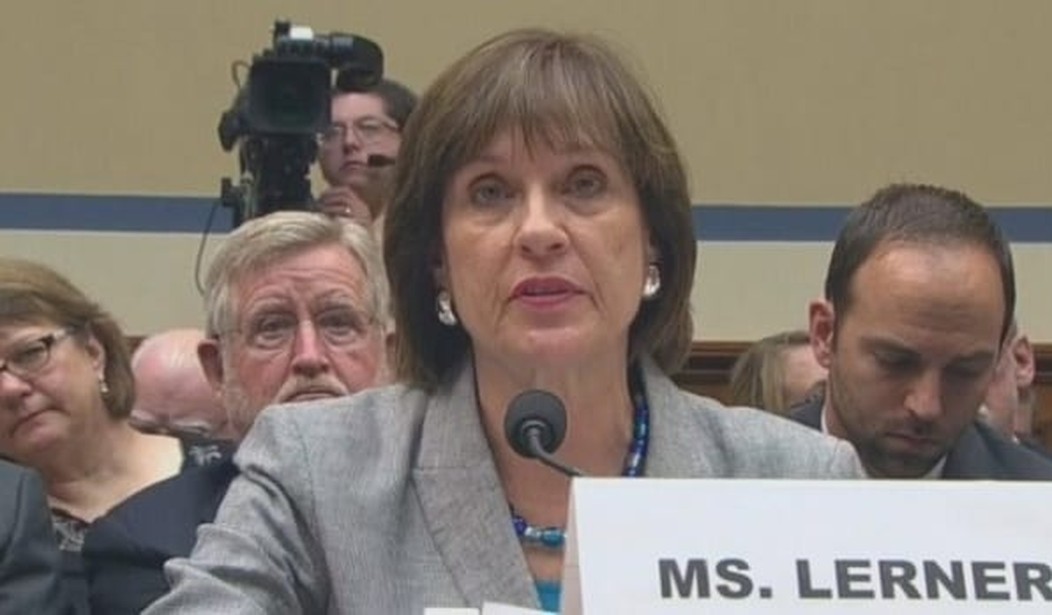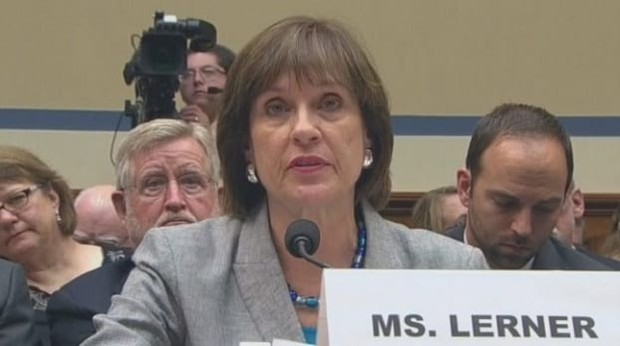*Promoted – Aaron*
New emails from Lois Lerner and other the top IRS officials at the center of the targeting of conservative groups provide even more evidence that the IRS scandal was directed from Washington.
It is becoming crystal clear that the targeting was not limited to rogue low-level Cincinnati employees as the Obama Administration is so found of saying.
As the Washington Examiner details:
In a July 2012 email, Holly Paz, who was then director of the IRS Rulings and Agreements division, asked IRS lawyer Steven Grodnitzky “to let Cindy [Thomas, director of EO in Cincinnati,] and Sharon [Camarillo, senior manager in Los Angeles,] know how we have been handling Tea Party applications in the last few months.” . . .
Grodnitzky worked in the IRS headquarters’ Exempt Organizations Technical Unit. In his response to Paz, he said his colleagues were “working the Tea party applications in coordination with Cincy. We are developing a few applications here in D.C. and providing copies of our development letters with the agent to use as examples in the development of their cases.”
In a February 2010 memo, Thomas directed a colleague to “let ‘Washington’ know about this potentially politically embarrassing case involving a ‘Tea Party’ organization.
“Recent media attention to this type of organization indicates to me that this is a ‘high profile’ case. In addition to 501(c)(4) typical legislative activities, application indicates possible future political candidate support.”
Further, an email from Lois Lerner just one month before she planted a question at an ABA meeting to soften the blow of the scandal seems to show how she was planning to explain away Washington’s involvement:
“Because the BOLO only contained a brief reference to “Organizations involved with the Tea Party movement applying for exemption under 501(c)(3) and 501(c)(4)” in June 2011, the EO Determinations manager asked the manager of the screening group, John Shafer [IRS Cincinnati field office manager], what criteria were being used to label cases as “tea party ” cases. (“Do the applications specify/state ‘ tea party’? If not, how do we know applicant is involved with the tea party movement?”) The screening group manager asked his employees how they were applying the BOLO’s short –hand reference to “tea party.” His employees responded that they were including organizations meeting any of the following criteria as falling within the BOLO’s reference to “tea party” organizations: “1. ‘Tea Party’, ‘Patriots’ or ‘9/12 Project’ is referenced in the case file. 2. Issues include government spending, government debt and taxes. 3. Educate the public through advocacy/legislative activities to make America a better place to live. 4. Statements in the case file that are critical of the how the country is being run. . . ” Lerner wrote on April 2, 2013. “So, we believe we have provided information that shows that no one in EO “developed” the criteria. Rather, staff used their own interpretations of the brief reference to “organizations involved with the Tea Party movement,” which was what was on the BOLO list.”
If that doesn’t show evidence of a cover-up, I don’t know what would.
At the ACLJ, we are continuing to perusing the largest litigation effort against the IRS on behalf or conservative and pro-life Americans who were targeted by the Obama Administration’s IRS. The more we learn, the worse it seems to get.
Matthew Clark is Associate Counsel for Government Affairs and Media Advocacy with the ACLJ. A lifelong citizen of the Commonwealth of Virginia, he lives with his wife and three boys in Northern Virginia. Follow Matthew Clark: @_MatthewClark.














Join the conversation as a VIP Member